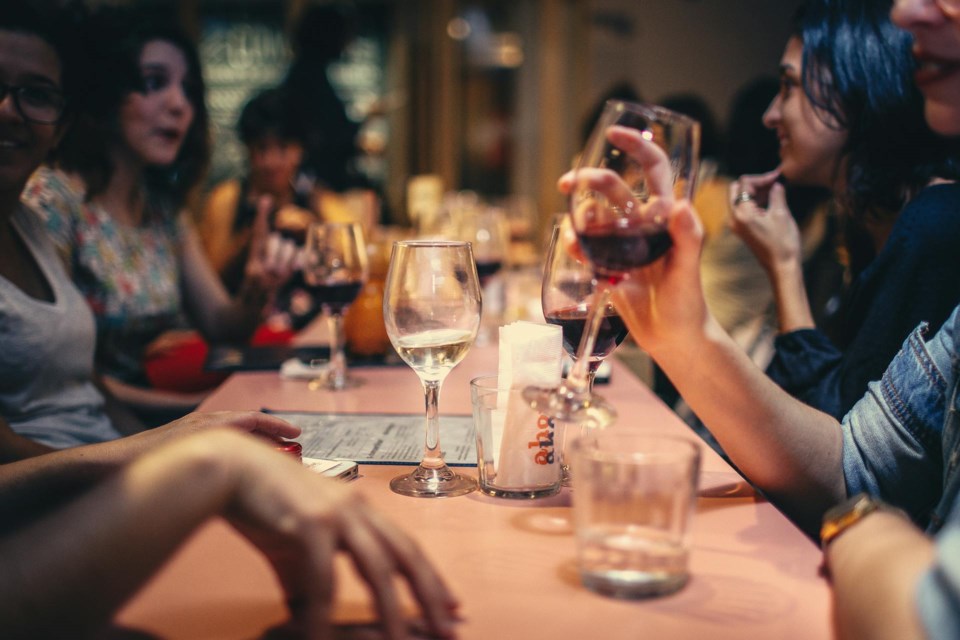When Canadians began to go back to their regular activities upon the conclusion of the COVID-19 pandemic, many were pleased with the return of certain elements of their daily lives. We did not have to rely completely on food delivery apps and could attend restaurants. We also finally visited the dentist or the hair salon after long absences.
With the pandemic behind us, a growing number of people and establishments have started to notice a disheartening trend: Individuals booking appointments and making reservations that are not met. A new option to deal with this problem is to advise individuals that a “no-show" fee will be collected in case the restaurant table is left empty or the medical specialist is kept waiting for a patient that never arrives.
Research Co. asked Canadians about this development and found a split on whether restaurants should be able to charge a no-show fee if a reservation is missed: 44 per cent of the country’s residents believe this action is justified, while 48 per cent deem it unjustified.
Albertans are the most likely to be dismayed at the prospect of paying a no-show fee after a restaurant reservation is abandoned (58 per cent). The proportions are lower in Saskatchewan and Manitoba (53 per cent), Ontario (50 per cent), British Columbia (49 per cent), Atlantic Canada (47 per cent) and Quebec (42 per cent).
More than half of Canadians of European origin (54 per cent) think charging a no-show fee at a restaurant is unwarranted. Fewer residents of the country whose descent is South Asian (46 per cent), East Asian (43 per cent) or Indigenous (40 per cent) concur.
Our views are different when pondering other appointments that are ultimately not met. Majorities of Canadians think a no-show fee is justified at the pet groomer (51 per cent), the barber or hair salon (53 per cent), a doctor or medical specialist (57 per cent) or the dentist (59 per cent).
More than four in five Canadians (85 per cent) say they have not had to cover a no-show fee in the past year. The generational gaps are astonishing. While only five per cent of Canadians aged 55 and over have had to pay after not making it to their appointment or reservation, the proportion jumps to 13 per cent among those aged 35 to 54 and to 27 per cent among those aged 18 to 34.
Even when money is not an issue, Canadians aged 18 to 34 are not particularly great at making it to the places to which they committed to go. Only nine per cent of Canadians aged 55 and over admit to missing a reservation and/or appointment with people or establishments over the past 12 months. The numbers shift slightly among those aged 35 to 54 (27 per cent) and rise markedly to 43 per cent among those aged 18 to 34.
Put differently, more than two in five of the country’s youngest adults have not made it to an appointment or reservation, and more than one in four have paid a no-show fee in the past year, mostly to dentists (15 per cent), doctors or medical specialists (12 per cent) and restaurants (11 per cent).
Canadians who missed an appointment or reservation provide a vast array of explanations. Two in five of them (40 per cent) allege personal issues, while fewer cite setbacks in scheduling (27 per cent), transportation (26 per cent), work (25 per cent), family (24 per cent) and the weather (21 per cent) for not reaching a specific place at a specific time. Young Canadians are more likely to cite scheduling (33 per cent), transportation (32 per cent) and the weather (27 per cent) as reasons for their absence than their older counterparts.
The survey outlines a Canadian public that espouses higher support for no-show fees for health care appointments and personal or pet grooming. The notion seems to be that, if professional time has been allocated, a payment must be made. This is not the case with restaurants. Canadians appear to be thinking that the table they abandoned will simply be occupied by different patrons. The explosion of no-show fee warnings on online booking sites certainly suggests that the restaurant industry has felt the impact of absenteeism.
The findings reveal much more than what we originally wanted to know about. The country’s youngest adults are having a tough time keeping appointments and reservations. In spite of extraordinary developments in technology, we see Canadians aged 18 to 34 looking at scheduling, transportation and the weather to justify not making it to the dentist or the barber. We will have to wait and see if no-show fees ultimately make people more mindful of the services that others are ready to provide.
Mario Canseco is president of Research Co.
Results are based on an online study conducted from July 5 to July 7, 2024, among 1,001 adults in Canada. The data has been statistically weighted according to Canadian census figures for age, gender and region. The margin of error, which measures sample variability, is plus or minus 3.1 percentage points, 19 times out of 20.




